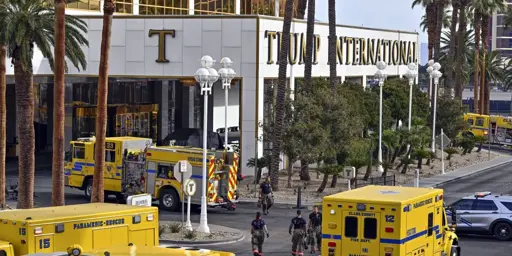The two men who carried out apparent terror attacks on New Year’s Day — killing 15 people by plowing a pickup truck into a crowd of New Year’s revelers in New Orleans, and detonating a Tesla Cybertruck outside a Trump hotel in Las Vegas — both had U.S. military backgrounds, according to the Pentagon.
From 1990 to 2010, about seven persons per year with U.S. military backgrounds committed extremist crimes. Since 2011, that number has jumped to almost 45 per year, according to data from a new, unreleased report shared with The Intercept by Michael Jensen, the research director at the National Consortium for the Study of Terrorism and Responses to Terrorism, or START, at the University of Maryland.
Military service is also the single strongest individual predictor of becoming a “mass casualty offender,” far outpacing mental health issues, according to a separate study of extremist mass casualty violence by the researchers.



Which comes first?
Of those who carry out violent acts, were they already violent prior to their military service and attracted to it for the promise of being able to act on these violent urges, or were they mentally damaged through their time serving, turned violent by what they saw and did?
Military trains fear. The constant threat assessment required decays a soldier’s capacity to operate in civil society.
Things like every door opening, even in public, is a pulse of potential threat of violence. People can’t live like that forever and for many it becomes increasingly difficult to break that mindset over time.
The military experience of killing civilians does remove a lot of mental barriers of killing civilians.
I think that framing ignores logistics. Many people have violent thoughts but lack the training. The military gives them the skills to live out their fantasies. It really is that simple.